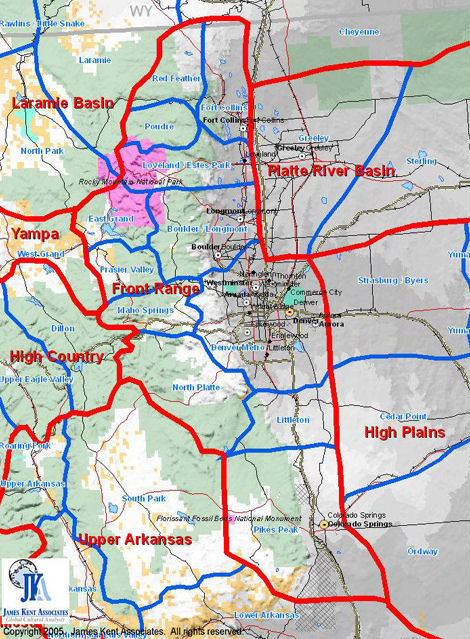Social Resource Unit - Front Range
Human Resource Units (HRUs) are characterized by frequent and customary interaction. They reveal face-to-face human society within which people have personal knowledge of each other and well-developed caretaking systems sustained through informal network relationships. People's daily activities occur primarily within their HRU including work, school, shopping, social activities and recreation. Health, education, welfare and other public service attributes are highly organized at this level with a town or community almost always at its focal point.
Social Resource Units (SRUs)
Social Resource Units (SRUs) are the aggregation of HRUs on the basis of geographic features of the landscape, often a river basin, for example and are the bases of shared history, lifestyle, livelihood, and outlook. At this scale, face-to-face knowledge is much reduced. Rather, social ties are created by action around issues that transcend the smaller HRUs and by invoking common values: "We love the high desert". SRUs are characterized by a sense of belonging. These are rather large areas and one's perception as to the Unit's boundary is that when you cross the SRU boundary you are in an entirely different culture. There is a general feeling of "oneness" as being part of this regional Unit. There is a general understanding and agreement on beliefs, traditions, stories and the attributes of being a part of the Unit.
Cobalt Web Designs
